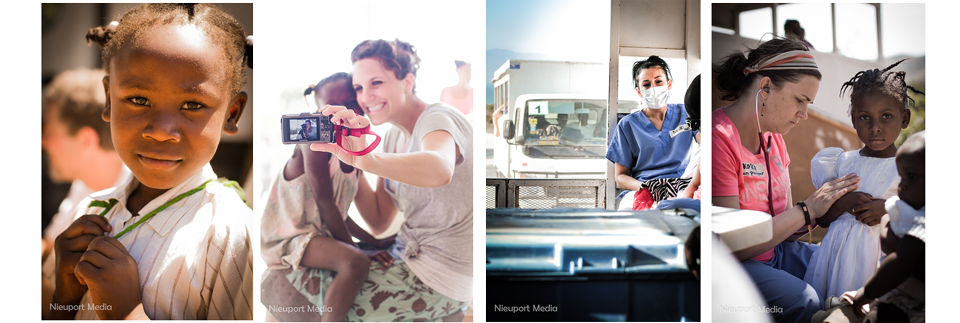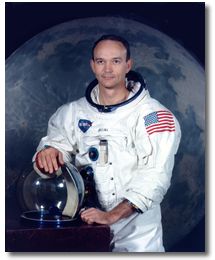Today NASA launched and successfully recovered their latest technological marvel, the Orion spacecraft. As a closet nerd who once dreamed of earning his level 3 certification in high powered rocketry (an expensive and math intensive hobby) I have always been interested in the idea of space travel. Perhaps one of the cruelest tricks that has ever been played upon me was when Google created an elaborate website to accept applications for what they called Project Virgle, the first permanent human colony on Mars. Sadly applications were only accepted for one day. April 1st, 2008.
I was pretty heartbroken when I finally determined that Project Virgle was, in fact, a hoax. The thought of being among the first people to explore a new world and shape its future was very appealing to me. It would seem that today, NASA has taken a small step towards making something like Project Virgle a reality. If this turns out to be another elaborate hoax, please don’t tell me. I need some small dream like this to keep my head above water!
As I reflected on the events of today and of 2008, I slowly wound my way down the historical road that has brought us here. Countless people and time has been spent bringing our space program to where it is today. From Alan Shepherd in a Mercury capsule to the future crew of the Orion spacecraft, the road has been fraught with adventure and peril. Space travel is still a young science, and each crewmember knows that the cost for the incredible privilege of travelling where few others have, may ultimately be his or her life.
It is easy to question the validity of the space program now, asking questions like “why waste so much money?” or “what do we get from space?” has become fairly commonplace. So I want to take a look back at the roots of our space program, and remind us of what it meant in the beginning.
The 60’s were a turbulent time, since I didn’t live through them, I can’t really compare them to today, but the fear many felt then has been preserved in countless history books and films. Today we laugh while watching the ridiculous civil defense films teaching children to duck and cover in case of an atomic attack. For the students watching those films however, the threat of total war was one that was very real. The Cuban Missile Crisis of 1962 may have been the closest our pale blue dot has come to total destruction.
When John F. Kennedy made his famous “We choose to go to the moon” speech just a month before the Cuban Missile Crisis, it was to primarily to address the concerns that the United States was losing to the Soviets in the space race. More importantly, JFK had a message he wanted to convey to a country struggling to stay united in a time of great unrest. The civil rights movement was picking up steam, and the process of desegregation was proving to be a painful one. JFK knew that if the United States was not drawn together around a common goal, it could fracture irreparably. So it was with great wisdom that he said the following:
“We choose to go to the moon in this decade and do the other things, not because they are easy, but because they are hard, because that goal will serve to organize and measure the best of our energies and skills, because that challenge is one that we are willing to accept, one we are unwilling to postpone, and one which we intend to win, and the others, too.”
It doesn’t take much imagination to compare the struggles of the last year, with the struggles of the 1960s. My heart hopes for a leader that can unite us in the same way as JFK did in the 60’s.
Now I am not saying that traveling to Mars will solve all of Earths problems. I do think that there is something important we can learn from our trip to the moon, something that can guide us, nearly 50 years later.
We all remember the name of the man who first stood on the moon. Some of us probably even remember the name of the man who stepped down the ladder after Commander Armstrong. Do you know the name of the third astronaut on that incredible mission, the one who would not set foot on the moon?
I have always wondered what it would have been like to have been in Michael Collins place. Knowing that you were going to be so incredibly close to the moon, but that you would never set foot there. Returning home to your family and friends, to your country, your state, even your own hometown and being remembered as the guy who stayed behind in the command module. The guy who almost did, but didn’t. As I write this, I am filled with a sense of empathetic sorrow and regret for a man I will likely never meet. Michael Collins has been perceived as the awkward third wheel of the moon mission for the last 45 years.
It is not just the fact that Michael Collins would not get to set foot on the moon that bothers me. As the command module that Collins piloted around the lunar surface slipped over to the dark side, he became in that moment the person to hold the title of “furthest from another human, ever”. Until Apollo 12 came along 4 months later, he would hold that title alone. No other man has been further cut off from humanity than Michael Collins. While on the far side of the moon, he couldn’t even communicate with earth by radio. Even just the thought of it now seems incredibly lonely to me.
The bravery of the men on the lunar surface has never been questioned, but has anyone ever considered the bravery Collins exhibited on that day? I don’t know that I could do it. Could I take all of the same risks as men destined to be known as heroes, for almost no reward?
As the earth continues to turn, and we get further and further away from the events of July 20th, 1969, I think we could all use a little bit of what Michael Collins had.
I suspect that Collins knew something about himself that we would never expect. He knew that by being willing to sacrifice the prestige and honor of being on the moon, he would enable others to do great things. He knew that because he was willing to put the needs of others first, the mission could succeed. Armstrong and Aldrin could not be the heroes they are today without the efforts of Michael Collins. In fact, I would argue that the United States would not be what it is today without his efforts.
We can’t know what would have happened if the Soviets would have reached and landed on the moon first. I don’t know that I am qualified to speculate on the possible alternate timelines we should expect to see were this one thing changed. We can look at where we are now in history and search for links to Collins sacrifice, but hindsight isn’t always as clear as people claim it is. I suspect that a large part of who we are as the United States and the world will forever owe its shape to the men and women who made Apollo 11 a reality.
So as our country faces a time that may just turn out to be as turbulent as the 1960’s, I hope that we can all learn from Michael Collins and the men and women across the world who made Apollo 11 possible (including the scientists and engineers and support staff). They all made selfless decisions that cost them honor and prestige, and the world is better for it.
Maybe you will be the Michael Collins of a new age.
Seriously Google…don’t ever play with me like that again!




